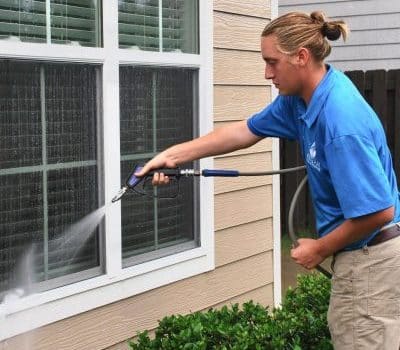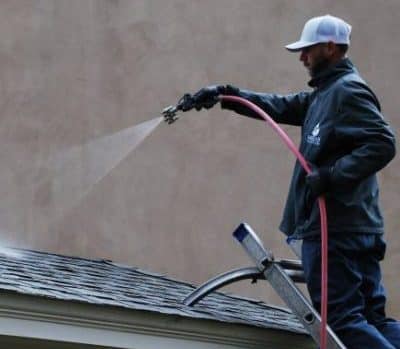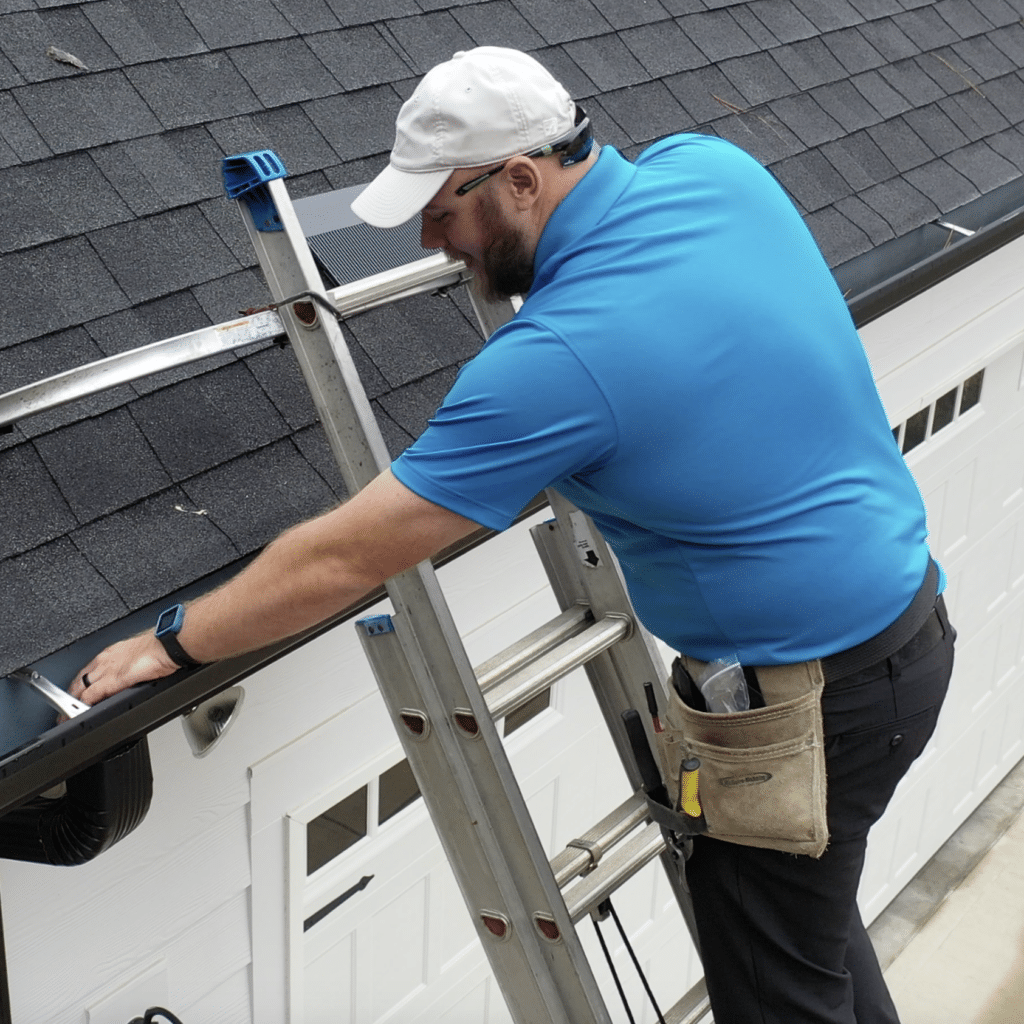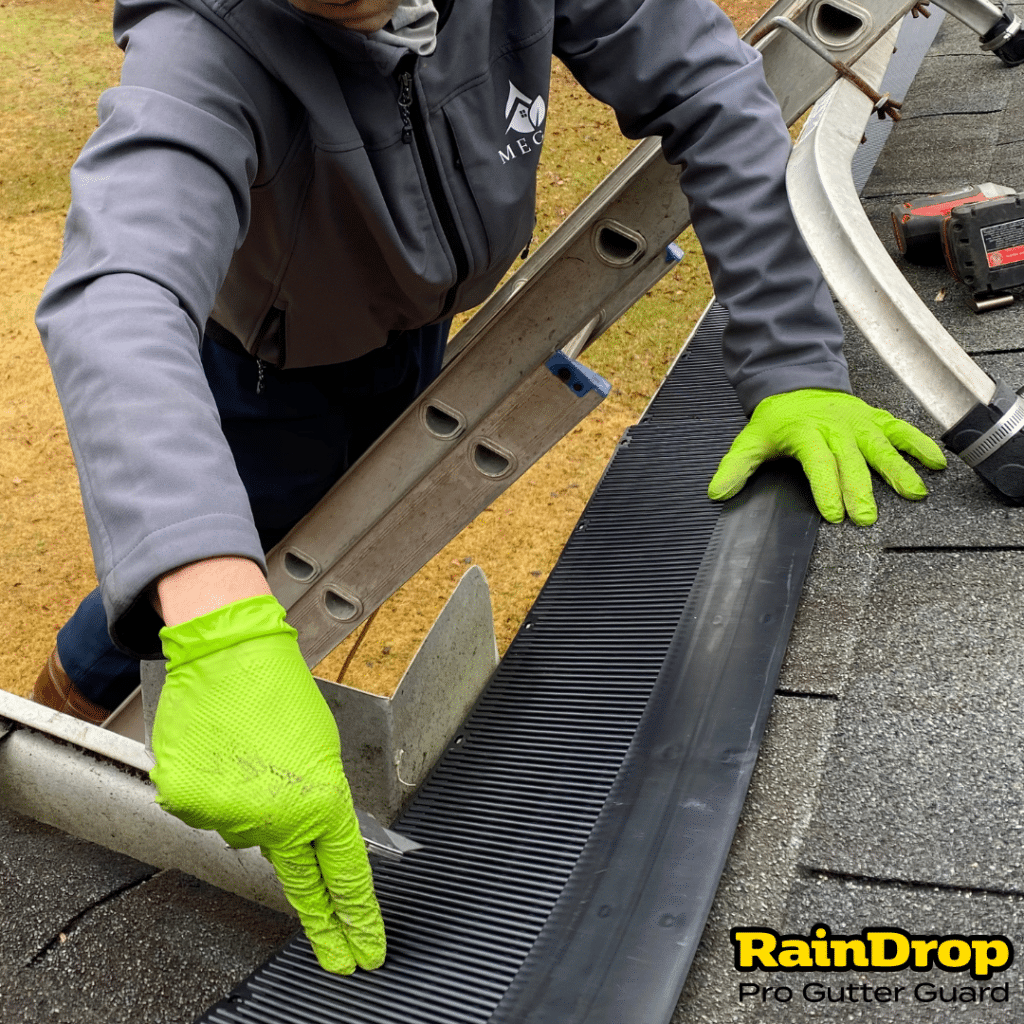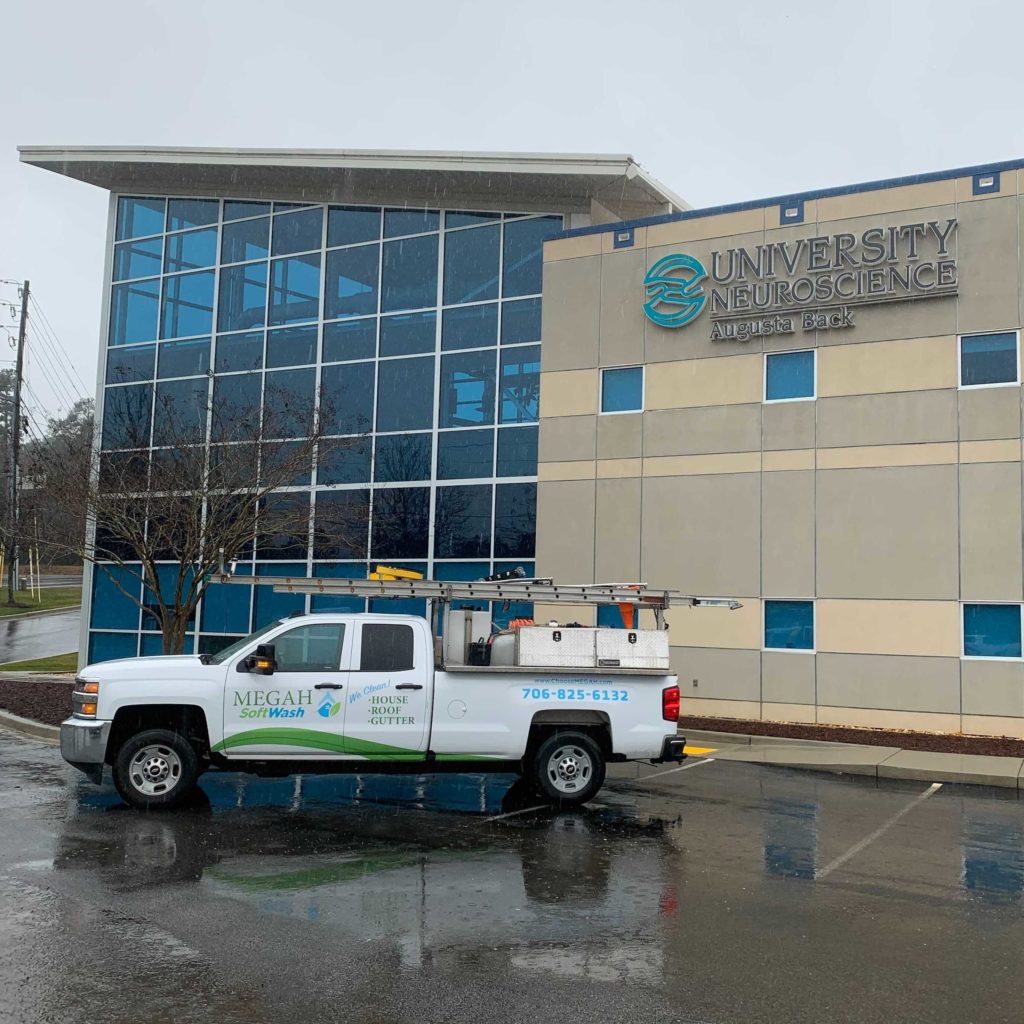Softwashing and pressure washing are both popular methods for cleaning your home’s exterior. However, they are two different approaches to achieving the clean exterior you desire for your house or business. So, if you’re wondering which is a better option, our experts are here to help you. In this Softwash vs. Pressure guide, we’ll delve into the usage of both methods, how they work, and the pros and cons of each.
Softwash and Pressure Wash Basics
Pressure washing relies on high pressures, ranging from 1,500 to 3,000 PSI, to vigorously scrub surfaces and eliminate grime. This technique utilizes the sheer force of pressurized water to dislodge stubborn grime, dirt, mold, and other contaminants adhered to various surfaces. This is a robust approach that can be highly effective for heavy-duty cleaning tasks, capable of rejuvenating surfaces through sheer force.
In contrast, soft washing uses a low-pressure washer coupled with soaps, solutions, and disinfectants to delicately clean housing structures. Soft washing introduces a combination of specially formulated soaps, solutions, and disinfectants into the cleaning process. These solutions work in tandem to break down and eliminate contaminants without relying solely on force, making it a more delicate and thorough method for cleaning housing structures.
Which One Lasts Longer and Cleans Better
The softwash method is pretty effective, as it combines gentle water with cleaning solutions. This combination ensures not only immediate cleanliness but also yields long-lasting results, providing a comprehensive and enduring cleaning solution. When done correctly, the results of softwash last longer, making it a preferable option for homeowners.
Pressure washing is also quite effective, utilizing high-pressure water to forcefully remove tough grime and stains from various surfaces. It can quickly eliminate built-up dirt, mold, and other contaminants, restoring the appearance of your home. However, despite its effectiveness, pressure washing may not be as gentle on surfaces.
Can It Lead to Property Damage
Since softwashing uses gentle cleaning without applying pressure, it is usually safer for delicate structures and surfaces, such as roofs and gutters. It’s highly recommended for roof and gutter cleaning, as the intense pressure may cause damage to delicate materials, such as siding, roofs, or intricate architectural details.
Additionally, softwash curbs harmful growth by preventing water intrusion into the siding and soffit, avoiding the breeding ground for mold and algae. Soft washing offers a gentle yet powerful alternative, ensuring a thorough cleaning without risking harm to the structural integrity of your home.
Signs Your House Needs to Be Washed
A dirty house exterior can be pretty obvious; however, some signs can be often overlooked. A discolored roof and walls, for example, can indicate the presence of mold, algae, or accumulated dirt, affecting both the aesthetic appeal and structural integrity of your home. It’s a clear signal that a thorough cleaning is needed to restore the visual appeal and prevent potential damage.
Furthermore, grimy siding, stained walkways, driveways, or decks, dust, and cobwebs in corners, and a higher-than-average energy bill are additional indicators that your home requires attention. Addressing these signs when you notice them is key to avoiding damage to your property and, of course, keeping it at its peak.
Do You Have Further Questions? Contact Us!
The debate over soft washing vs high-pressure washing is less about declaring one better than the other and more about choosing the right fit for different surfaces. If you have more questions about soft wash vs pressure wash or are unsure about which to pick, don’t hesitate to contact our team. We are more than happy to listen to all your needs and guide you towards the best option for your home or business.
